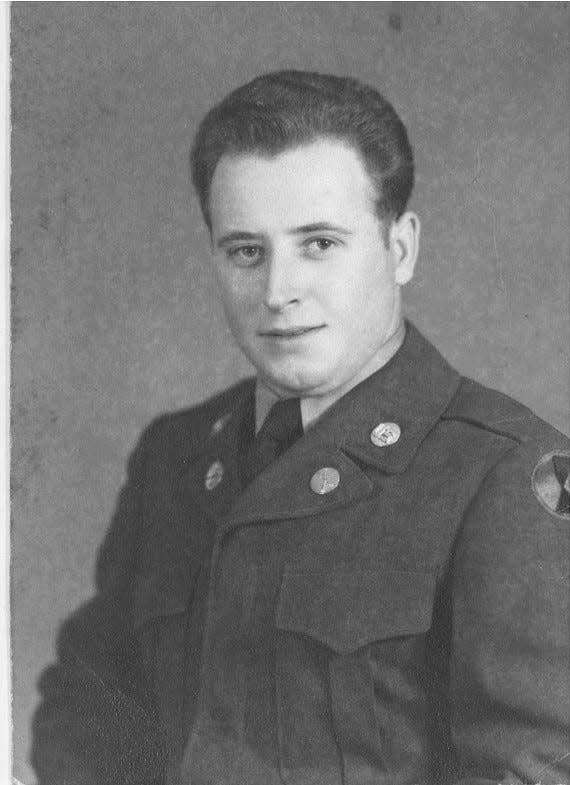Veterans column: Newark's Nickells released from North Korean prison camp
Corporal Walter Nickells and the other POWs that had survived the Tiger death march were in the far north of Korea at the Yalta River. Here, he continued his existence as a prisoner of the North Koreans.

In the Newark Advocate on July 26, 2003, he related some of his experiences there:
“At one point Nickells and two other prisoners were assigned to peel garlic bulbs in a shed. Out of hunger, Nickells found a way for them to hide some bulbs by folding and tying up their pant legs, filling them with bulbs. ‘Our pants were getting awfully puffy,’ Nickells recalled. A guard noticed. The guard made the three POWs kneel in front of all the prisoners. He ordered them to eat the garlic bulbs, without stopping, or else they’d get hit on the side of their heads with a gun. ‘Tears were running down my eyes bigger than my thumb,’ said Nickells, who wouldn’t let himself get beaten. ‘My mouth was burning up, burning all the way down.’
Nickells did get beaten a few other times. One occasion was when he stole away from the group while gathering wood in the mountains on a work detail. He was looking for something to eat. ‘I never dreamed I would die,’ he said. ‘I would just find something to steal, live off of. The worst thing was to give up. A lot of guys just gave up eating.”
In an interview that was published in the Newark Advocate on May 24, 2009, Nickells shared another story of how he survived. “Once when he and several others were working in the mountains, clearing brush for garden patches, they came across some corn. One of his buddies didn’t have many teeth left, so when they ate the ‘forbidden food,’ large chunks of the corn and saliva ended up on his face. ‘We sat under the bushes like squirrels and got to laughing about it.’ Nickells recalls. ‘I learned how to survive and I can survive on anything.’”
In October 1951, he and the other prisoners were placed on boats and traveled down the Yalu River where they were turned over to North Korea’s allies, the Chinese. “If the Chinese hadn’t taken us, all of us would have been dead in six months,” Nickells said. “The Koreans didn’t have nothing, even the civilians were starving, I’d never seen such a lousy country.”
When he was captured he weighed 180 pounds, when the Chinese took him he figured he was weighing about 80 pounds. “The Chinese fed us like kings.” Nickells recalled. “When they arrived they were given a trough full of rice and told to eat all they wanted. And when they finished that the Chinese gave them another trough full. During their stay, they were also given chicken, goat, and steamed bread. Nickells received his first bath in more than a year when the Chinese deloused him with boiling-hot water.”
On Aug. 23, 1953, Nickells was released to American authorities at Panmunjon. He had been a prisoner for 37 months. “It was like going from Hell to Heaven,” he said.
Nickells returned to Licking County, where he married and raised a family. He worked at Rockwell International as an inspector for 31 years before retiring. In 2002 the last surviving Korean War POW was picked to be the first person to ring Licking County’s Ohio Bicentennial Bell.
On Aug. 24, 2012, Walter Lee Nickells passed away at his home in St. Louisville. The 85-year-old Tiger Death March survivor is buried at Cedar Hill Cemetery.
Doug Stout is the Veterans Project Coordinator for the Licking County Library. You may contact him at 740-349-5571 or dstout@lickingcountylibrary.org. His book "Never Forgotten: The Stories of Licking County Veterans" is available for purchase at the library or online at bookbaby.com & Amazon.com.
This article originally appeared on Newark Advocate: Veterans column: Newark's Nickells released from North Korean POW camp
